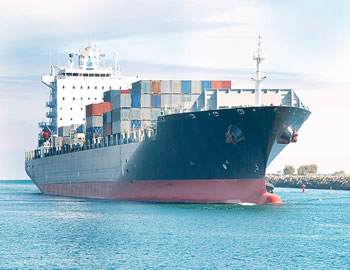

Shipping is bounded by legal framework, with the International Maritime Organization (IMO) regulating at the international level while the Maritime Administrations (MARADS) call the shots at the national level. In this report, TOLA ADENUBI looks at how NIMASA regulates shipping in Nigeria. MARITIME enforcement encapsulates all activities and efforts aimed at safety of life at sea, protection of the environment, the assets, infrastructures and related interfaces. Enforcement cover the whole spectrum from plan drawing to the scrapping/retirement of a vessels, both convention and non-conventional vessels(PDSC inclusive).
The Maritime industry, which includes ship-building and repairs, marine equipment manufacturing, marine operations, port operations,etc has some inter-dependent sub- sectors which together are referred to as the country’s maritime cluster.

In this cluster, safety and security is paramount and all assessments are based on IMO Standards, which guarantee an absence of subjectivity.
As a result, maritime administrations like the Nigerian Maritime Administration and Safety Agency (NIMASA) were created to implement those international safety/security standards that ensure the required atmosphere for the continued growth and prosperity of this critical sector.
ENFORCEMENT OF MARITIME CONVENTIONS
Enforcement of maritime laws encapsulate all efforts aimed to ascertain compliance, prevent, detect and suppress violations of maritime laws and their related rules and regulations and further ensure the application of defined penalties where necessary. It could be: either Audits/Surveys; Compliance inspections; or Investigations.
TYPES OF ENFORCEMENT
There are primarily two major types of enforcements: Flag and Port State control. While Flag State is the flag of the country chosen by merchant ships to be registered in, so that the vessel is bound to carry the flag of that state and comply with its rules and regulations; Port State is the inspection of foreign ships in national ports to verify that the condition of the ship and its equipment comply with the requirements of international regulations and that the ship is manned and operated in compliance with these rules.
Read Also: Ondo guber: Tinubu leads APC final rally
FLAG STATE
This is the enforcement on vessels flying a country’s flag. It is also the inspection of vessels by its Flag State for the verification of its compliance with international and National/domestic laws (safety, welfare and environmental). This enforcement is generally guided by the Merchant Shipping Act and related regulations.
PORT STATE (PSC)
This is the inspection of foreign ships in national ports to verify that the condition of the ship and its equipment comply with the requirements of international regulations and that the ship is manned and operated in compliance with these rules.
It is also the enforcement on foreign vessels visiting a country’s ports/maritime domain, Regionally coordinated and harmonized by the MoU regime.
INDEPENDENT PSC
There are also Independent PSC. This is a situation where other authoritiesenforce their own PSC regimes because they have not joined any regional MOUs; for example, USA and Taiwan.
NIMASA
As Nigeria’s lead maritime administration and safety agency, NIMASA drives government policy making enforcement on marine pollution, prevention and control; shipping development; cabotage administration; maritime labour; and Maritime security.
Deriving from the foregoing, NIMASA’s operational and enforcement strategies are necessarily geared towards the enforcement of: NIMASA enabling Acts (Cabotage Act 2003, Merchant Shipping Act 2007, NIMASA Act 2007); International conventions to which Nigeria is a signatory; and any other laws considered relevant to the safety, security, and efficient administration of Nigeria’s marine environment.








